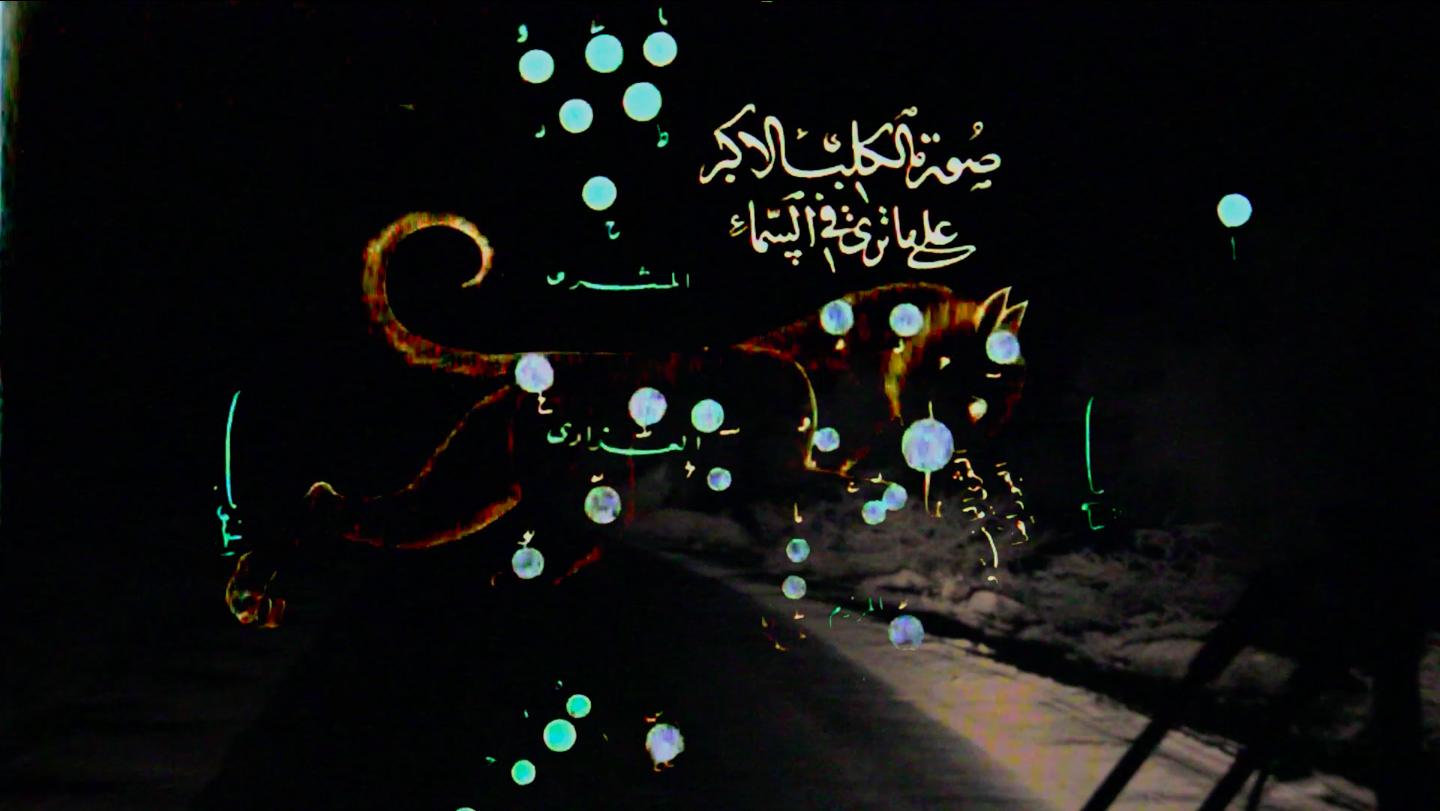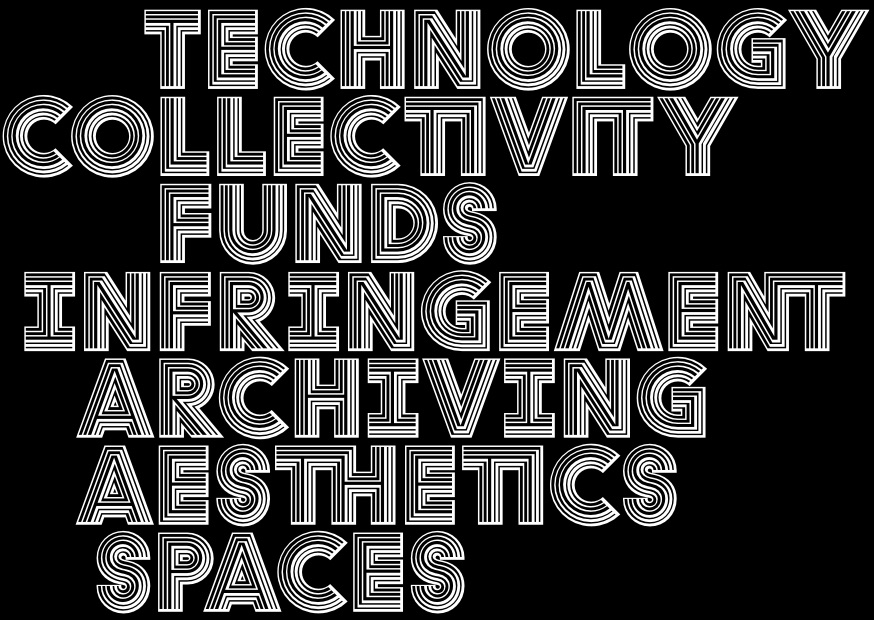CATCH-22.
LISTEN TO THE BEAT OF OUR IMAGES

FILM SCREENING 27.11.2022 19:00
AT Arkipel Documentary and Experimental Film Festival Jakarta, Indonesia
His destiny is not a wandering on random paths, but a perpetual ‘march to the star’ excluding the return to a home.
Mobilizing solidarity must be an act of restitution of our shared memories, our collective histories and narratives. One of the binding principles of our film community will be to share our findings, outcomes and creations that have benefitted from access to audiovisual archival material. We are not alone, we stand together to restore and circulate marginalized and silenced histories.
Activists who have been resisting and challenging the thingification [1] /objectification of the stolen elements from varied cosmologies, have assertively positioned the polysemy of the word ‘restitution’. It is a strategy to demand, on one hand, the resumption of dignity, rights and subjectivity of these stolen material/ immaterial objects/subjects, and at the same time push for the rehabilitation of these objects/subjects to their heirloom and to compensate with reparation toward acts of repair for the historical, material and spiritual losses endured by the very cultures and peoples to whom these objects/subjects belong to.
For cinema too, the question of beholding the past has been granted into the hands of a few. An honest restitution of these material/digital objects/subjects, which were rudely uprooted from their spatial and temporal cosmologies to serve voyeuristic, extractive, accumulative and dominative desires, means to restitute the social, material, economic and spiritual conditions that enabled these semiotics to be manifested in the first place. The catch-22 of the hegemonic international film circulation system has concerned the project United Screens for the past years. We are interested in sublime networks altering these dynamics. How can archival sampling offer a tool to subvert, comment on or otherwise re-contextualise fragments of films we might otherwise take for granted.
Catch-22 is a situation where paradoxical truth meets contradictory choices and results in absolute conclusions. [2] With this short film series we seek to centre the question of circulation, subversion and remix cultures as strategies to reverse, preserve, reserve imaginaries, becoming archives in and of themselves as restitutes of cinematic memory and beyond.
FILM PROGRAM
LIStEN TO THE BEAT OF OUR IMAGES
By Audrey Jean-Baptiste, Maxime Jean-Baptiste France/Guyana 2020 15 min
When Algeria gained independence from France in 1962, French president Charles de Gaulle urgently needed to find a new home for the CNES space center. Thanks to its ideal coastal position near the equator, he chose the little town of Kourou in the overseas territory of French Guiana. But no one gave a thought to the consequences of building a rocket launching facility on the local population living there. Archive CNES footage of the construction of the space center and scenes from life in the new, modern Kourou are accompanied by an evocative soundtrack and voiceovers, shifting the perspective onto the people who until now have been rendered invisible. All that remains of the mesmerizing shots of rocket launches is pulsating stardust, as a reminder of what local people lost through their forced rehousing.
Audrey Jean-Baptiste is a documentary and fiction filmmaker. She works between France and French Guiana. Her films address issues of race, gender and sexuality. Her first documentary Fabulous (2019) has been selected in about sixty international festivals.
Maxime Jean-Baptiste is a filmmaker based between Brussels and Paris. His audiovisual and performative work lies between documentary film and contemporary art. Nou voix (2018), his autobiographical video work, received the jury prize at the Festival des Cinémas Différents et Expérimentaux de Paris.
LAS PICAPEDRERAS (THE STONEBREAKERS)
By Azul Aizenberg Argentina 2021 16 min
No images are preserved from the Great Tandil Strike, carried out in 1908 by the stonebreakers. There are only some testimonies left in a forgotten book and a fiction film from the seventies. A century away, we reconstruct their history using found-footage from several films, looking for the absent images of the stonebreakers into the gestures of other women. The victory of this riot wouldn't have been possible without their actions on the frontline.
Azul Aizenberg (Buenos Aires, 1993) is a filmmaker graduated from Universidad del Cine (FUC). She wrote and directed the short film “Last Land” (2016) and “Friend” (2019). Today she is editing her first feature film “Disposable Love”. “The Stonebreakers” (2021) is her third short film.
FESTINA LENTE
By Baya Medhaffar Tunis/France 2021 21 min
Prayers having no effect on their perdition, the traveler and his shadow make their way at the crossroads of images and voices encountered on the road that form and deform as they advance.
So many apparitions that are each an opportunity to stop for a while, to take a look or to listen before resuming their walk. With as only landmarks, such ancient memories that they now seem to come from another time, that of childhood, of our childhood.
Born in 1995 in Tunis, Baya Medhaffar studied cinema and philosophy at the University of Paris 8 - Saint Denis. Since 2020, she is a programmer for the Festival GABES CINEMA FEN. Her first short film "Festina Lente يا عم الشيفور" has been selected in many festivals such as FID Marseille, Doc Lisboa, Jihlava Film Festival, and the Carthage Film Days. It was awarded at the Festival of Different and Experimental Cinemas of Paris and at the Mostra del nuovo cinema of Pesaro.In 2022, she was among the 100 recipients of the Prince Claus Seed Awards and was part of the jury of the international competition of the Festival of Different and Experimental Cinemas of Paris.
GOLDEN JUBILEE
By Suneil Sanzgiri India/ United States 2021 19 min
What is liberation when so much has already been taken? Who has come for more? "Golden Jubilee", the third film in a series of works about memory, diaspora and decoloniality, takes as its starting point scenes of the filmmaker’s father navigating a virtual rendering of their ancestral home in Goa, India, created using the same technologies of surveillance that mining companies use to map locations for iron ore in the region. A tool for extraction and exploitation becomes a method for preservation.
The father, sparked by a memory of an encounter as a child, inhabits the voice of a spirit known locally as Devchar, whose task is to protect the workers, farmers, and the once communal lands of Goa. Protection from what the filmmaker asks? Sanzgiri’s signature blend of 16mm sequences, 3D renders, direct animation, and desktop aesthetics are vividly employed in this lush, and ghostly look at questions of heritage, culture, and the remnants of history.
Suneil Sanzgiri is an Indian American artist, researcher, and filmmaker. His work spans experimental video and film, animations, essays, and installations, and contends with questions of identity, heritage, culture and diaspora in relation to structural violence. He graduated from the Massachusetts Institute of Technology (MIT) with a Masters of Science in Art, Culture and Technology in 2017.
Sanzgiri’s work has been screened extensively at festivals and venues around the world. He was named one of the “25 New Faces of Independent Film” in Filmmaker Magazine’s Fall 2021 Issue, and in Art in America's "New Talent" issue in 2022. He is currently working on his first feature length film.
United Screens is conceived by SAVVY Contemporary in collaboration with Wekalet Behna (Egypt), AVEC – L'Association de Volontariats, Échange Culturel et Action des Jeunes (Tunisia), NAAS – Network of Arab Alternative Screens (Lebanon), Estación Terrena (Colombia), and ARKIPEL – Jakarta International Documentary and Experimental Film Festival (Indonesia). The project is supported by AFAC – Arab Fund For Arts and Culture.
Image Festina Lente by Baya Medhaffar
See Aimé Césaire: Discours sur le colonialisme
Concept Note Arkipel Film Festival 2022

